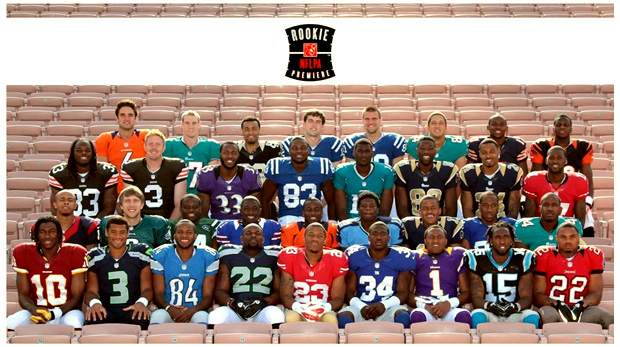Football Outsiders' post-draft 2017 NFL projections
Aaron Schatz/Special to ESPN.com
With the NFL draft in the rearview mirror, it's time for another round of Football Outsiders projections for the 2017 season. As with the projections we did in April, this forecast shows how parity has declined in the NFL over the past few years. Fewer teams are making rapid turnarounds from one season to the next -- and predicting which teams will make those rapid turnarounds is always difficult. Nonetheless, we can get a good idea of why certain teams will be better or worse in 2017 by looking at their underlying performance in 2016 (not just simple wins and losses), and then factoring in coaching/personnel changes and general year-to-year regression trends.
While the NFL draft plays a huge role in building a winning franchise, its effect on the next season is small and difficult to predict. Did your team add a bunch of promising talent on draft day? Guess what: So did every other team -- except the Patriots, who added veteran talent before draft day instead. The draft does play a small role in changing our projections from what we had a month ago, but perhaps not in the way you might expect. Although offense is generally more predictable than defense, drafting defensive players near the top of the draft tends to have a stronger positive effect than drafting offensive players near the top of the draft. Subjectively, we can all be excited that the
Los Angeles Chargers added wide receiver
Mike Williams and then filled two holes on their offensive line. But objectively, Indianapolis drafting
Malik Hooker and
Quincy Wilson in the first two rounds has a stronger effect on our forecast for 2017. (But not much stronger: We still have Indianapolis third in the AFC South.)
Our projection system starts with Football Outsiders' DVOA ratings for the past three years, although last year's ratings end up about six times as important as either 2014 or 2015. (You can find
last year's final ratings here.) Offensive projections also incorporate a separate projection for the starting quarterback done independent of the team. After that, we account for general regression trends and incorporate a number of other variables that measure everything from turnover ratios to personnel and coaching changes on both sides of the ball.
Each team has a forecasted record but also, for those of you wanting more detail, a more exact "mean projected wins" number. We also list strength of schedule based on average projected DVOA of next year's 16 opponents, ranked from the hardest (Philadelphia is No. 1) to the easiest (New England).
When considering these numbers, remember that this is not the final, official Football Outsiders forecast for 2017. There are still personnel moves to be made, and improvements to our forecast system that will alter our projections before we publish Football Outsiders Almanac 2017 in July.
Also note that stat projections naturally consider a wide range of possibilities. There's a lot of randomness in the NFL: Player development is difficult to predict, injuries have a huge impact, and even the better team on an individual day might not win a game because of the arbitrary bounce of a fumble or a tipped pass. A team projected to go 7-9 could realistically end up anywhere between 3-13 and 11-5. Taking the average of so many possibilities, all teams end up grouped more toward 8-8 with few teams listed with double-digit wins or losses. We've tweaked the results slightly to get a more realistic spread of win-loss records, but nonetheless, the numbers published below don't mean that we expect the 2017 season to end with no team below 5-11.
AFC South
Tennessee Titans: 8-8 (8.3 mean wins; SOS: 29)
Jacksonville Jaguars: 8-8 (7.6 mean wins; SOS: 31)
Indianapolis Colts: 7-9 (7.3 mean wins; SOS: 30)
Houston Texans: 6-10 (6.0 mean wins; SOS: 10)
On the basis of play-by-play performance, the Titans were the best team in the division last season, ranked 15th in our DVOA ratings. They've made some strong free-agent additions on defense, though the decision to cut cornerback Jason McCourty is curious. Our system also buys into the Jaguars a little bit. They were dead last in defensive turnovers per drive, a strong indicator of future improvement, and eventually drafting all that defensive talent and signing free agents such as
Calais Campbell and
A.J. Bouye has to pay off. Of course, given the state of the Jaguars' offense, it's still not likely to pay off with a playoff appearance, but the team should at least be competitive.
Houston may have won the division last season, but they were a dismal 29th in our DVOA ratings. That first-place finish doesn't do the Texans any schedule favors, because there's a big difference between playing the Patriots and playing the other AFC East teams. Drafting
Deshaun Watson doesn't really improve their offensive projection too much; it's not realistic to expect a good season from any rookie, even a first-round pick. Houston is also surprisingly consistent on special teams, and not in a good way; they've ranked in the bottom five for five straight seasons. Those two units outweigh a defense that was good last year and should be better with the return of
J.J. Watt. Meanwhile, Indianapolis is listed here at 7-9, same as they were in our April forecast. However, drafting all that defensive talent has changed the actual Colts average from 6.6 wins to 7.3 wins.



